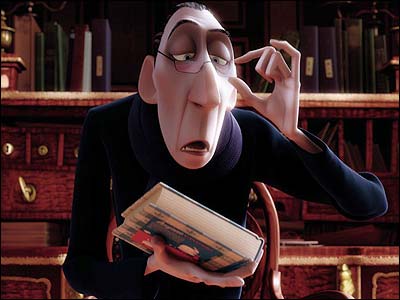 Composer Max Reger famously wrote to Dr. Rudolph Louis, a critic for the Münchner Neueste Nachrichten who had published a bad review on February 7, 1906 : “I am sitting in the smallest room of my house. I have your review before me. In a moment it will be behind me!” (“Ich sitze in dem kleinsten Zimmer in meinem Hause. Ich habe Ihre Kritik vor mir. Im nächsten Augenblick wird sie hinter mir sein.”)
Composer Max Reger famously wrote to Dr. Rudolph Louis, a critic for the Münchner Neueste Nachrichten who had published a bad review on February 7, 1906 : “I am sitting in the smallest room of my house. I have your review before me. In a moment it will be behind me!” (“Ich sitze in dem kleinsten Zimmer in meinem Hause. Ich habe Ihre Kritik vor mir. Im nächsten Augenblick wird sie hinter mir sein.”)
Another story variously attributed to Rossini or Strauss (among others) relates that a well known critic had just died. One of his few friends approached [insert composer] to ask if he would like to contribute 50 kroner to help pay for the critic’s burial. The composer replied, “Here’s 100 kroner. Now you can bury two critics.”
Then there is Stravinsky’s telegram to the Herald Tribune : “the only blight on my eightieth birthday is the realization my age will probably keep me from celebrating the funeral of your senile music columnist [Paul Lang].”
As a composer, I’ve personally received bad reviews from critics. I know how easy it is to feel that they – those ignorant critics – are morons who just don’t get it and that they serve no useful purpose. Easy and wrong.

Donald Rosenberg is the classical music critic of Cleveland’s newspaper The Plain Dealer. In 2008 he was forbidden by his editor Susan Goldberg to cover the Cleveland Orchestra. He had published a series of unflattering reviews of the Orchestra and its music director, Franz Welser-Möst. In other words he was forbidden to write about the Phillies and was relegated to stories on the Iron Pigs. No matter that he had impeccable credentials (3 music degrees and experience as a performer) or that he backed up his opinion with specifics. No matter that he published the definitive history of the Cleveland Orchestra.

Understandably, Rosenberg sued. He sued not just his newspaper but the management of the Cleveland Orchestra which had filed several “formal complaints” against him. Unfortunately, a jury ruled against Rosenberg.
Here in Philadelphia we are fortunate to have two good music critics writing for an otherwise mediocre newspaper: the Philadelphia Inquirer. A few years back, one critic – Peter Dobrin – wrote a series of articles that were unflattering to Christoph Eschenbach who became the Philadelphia Orchestra’s music director in 2003. It made for quite interesting reading because the newspaper’s other critic David Patrick Stearns disagreed. To its credit, the orchestra did not thugishly retaliate against the newspaper. Instead Eschenbach was “allowed to leave”. As a reader this is what I want. I want criticism to be fair. Of course it has to be subjective but it also must be backed up by specifics in order for a well informed reader to make his or her own mind up. Cleveland does not have this right now. They have a world class orchestra but not world class criticism. Rosenberg’s replacement is decades younger and is much less pedigreed and qualified for this position. The best that the readers of the Plain Dealer can hope for is that he will eventually grow into the role. What they will not have is the confidence that what they read about their fine orchestra has not been vetted by the orchestra’s goons. The question will remain: “Is this what the critic really thinks or is this a press release dressed up as a review?”
[avhamazon locale=”US” asin=”1886228248″ linktype=”pic” picsize=”medium”]